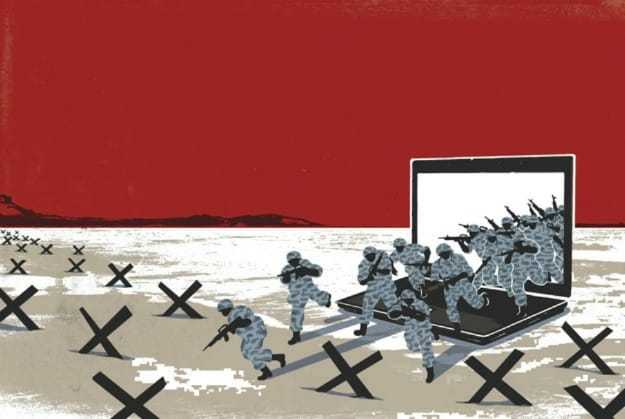Cyber Command, focused largely on Russia, China, Iran and North Korea — where cyberattacks on the United States most frequently originate — had run virtually no operations against what has become the most dangerous terrorist organization in the world.
The goal of the new campaign is to disrupt the ability of the Islamic State to spread its message, attract new adherents, circulate orders from commanders and carry out day-to-day functions, like paying its fighters. “We are dropping cyberbombs,” said Robert O. Work, deputy secretary of defense. “We have never done that before.”
The N.S.A. has spent years penetrating foreign networks — the Chinese military, Russian submarine communications, Internet traffic and other targets — placing thousands of implants in those networks to allow it to listen in.
Facebook, YouTube and Twitter are also growing more efficient at finding and removing Islamic State posts — which they can take down without court orders because the posts are a violation of the companies’ terms of service, executives say.
Nieuwe fronten van een onzichtbare oorlog. Zou men in die strijd over het internet ook rekening houden met collateral damage? Denk bijvoorbeeld aan het elektriciteitsnet dat uitvalt, waardoor airco uitvalt, eten ligt te bederven in koelkasten, en mensen in het donker zitten.
Gelezen bij The New York Times als U.S. Cyberattacks Target ISIS in a New Line of Combat.

